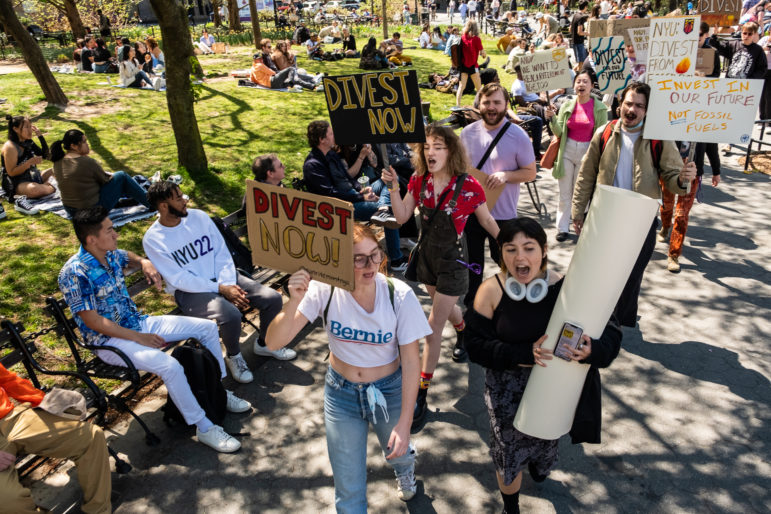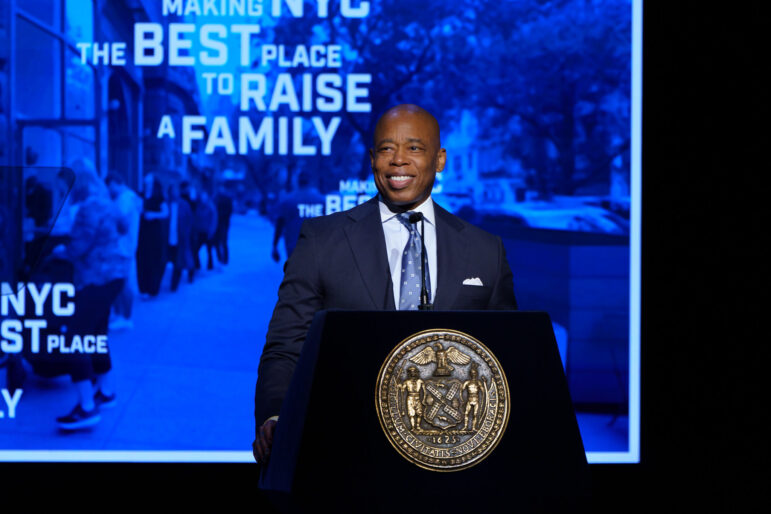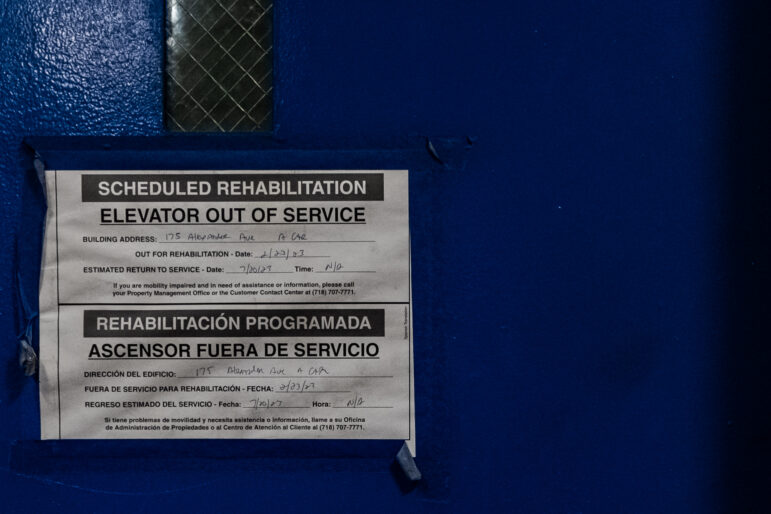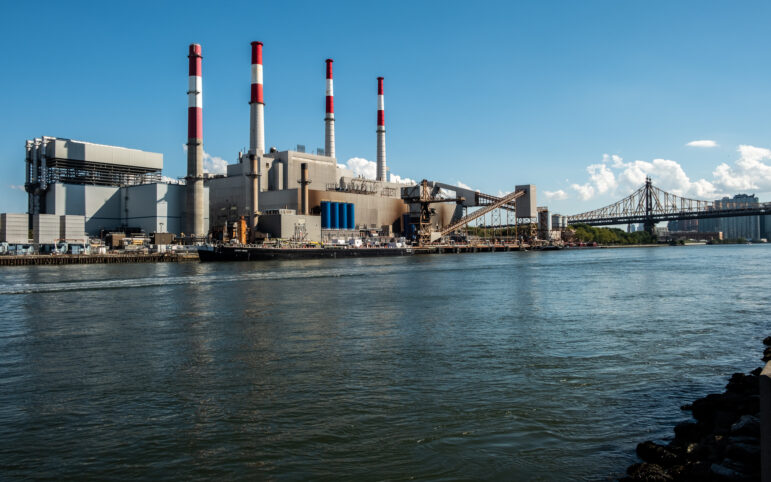For at least the third time in three months Monday, New York City’s homeless services agency violated its legal obligation to provide temporary shelter to anyone who requests it—this time delaying placement for dozens of men seeking a bed at an intake facility on East 30th Street.
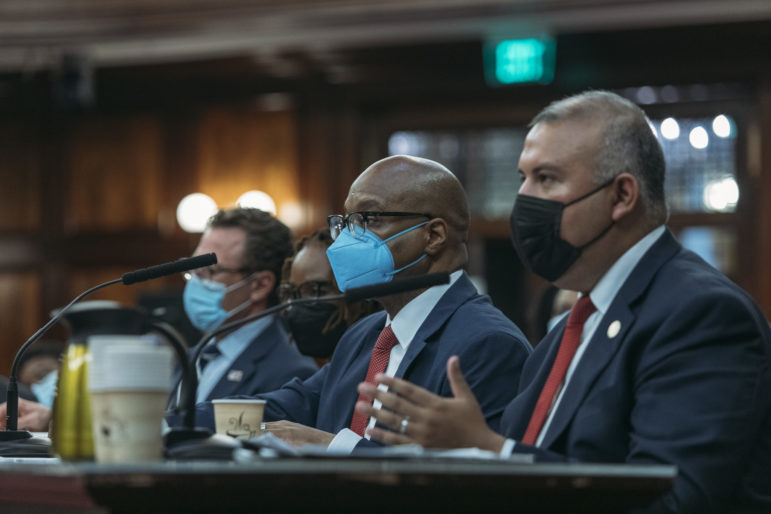
Emil Cohen/NYC Council Media Unit
Adams’ administration officials at City Council oversight hearing last month, testifying about the city’s shelter intake procedures amid a surge in people seeking shelter.For at least the third time in three months Monday, New York City’s homeless services agency violated its legal obligation to provide temporary shelter to anyone who requests it—this time delaying placement for dozens of men seeking a bed at an intake facility on East 30th Street.
The violation, first reported by NBC New York, marks the latest setback for an agency struggling to contend with a surge in New Yorkers experiencing homelessness, including newly arrived immigrants heading to the five boroughs after crossing the Southern Border. New York City is under unique court orders to provide temporary shelter to any single adult or family who arrives at an intake facility before 10 p.m. each night. On at least two occasions in July, the Department of Homeless Services (DHS) failed to move five families from a Bronx intake center to a shelter, a throwback to years past when families were made to wait days in the intake office before a new city law curtailed the practice.
On Tuesday, at least 60 men were denied placement after visiting the massive adult intake shelter near Bellevue Hospital and the East River. Attorney Joshua Goldfein from the Legal Aid Society’s Homeless Rights Project said DHS revealed the violation in a meeting Tuesday morning, explaining that they did not have sufficient capacity in a handful of assessment shelters where many homeless New Yorkers are placed before staff identify another more suitable shelter for them.
Rather than place the men directly into another adult shelter—where vacancy rates had remained relatively high—officials at the intake office kept them waiting and said they had no space, Goldfein said. The delays violated the city’s legal right to shelter that stems from a 1979 court decision ordering New York City to house men experiencing homelessness. Violations of the ongoing consent decree are known as “Callahan” violations after the lead plaintiff in that lawsuit.
Before Monday, New York City had not committed a known Callahan violation for single men since 2009, according to Legal Aid and the Coalition for the Homeless, though people frequently arrive at their placement site only to be denied because of a bureaucratic error and forced to find another shelter. The two groups have threatened to take the city to court if DHS does not reorganize its assessment and placement practices.
“It is now clear that this Administration simply does not have a handle on the city’s sprawling homelessness crisis and the serious capacity issues,” the two organizations said in a joint statement. “We are extremely alarmed by the frequency of these violations under this Administration, and, as legally required, the City must immediately promulgate a plan to ensure that no further violations occur.”
On Tuesday morning, Goldfein said the city had pledged to add hundreds of beds—likely in hotels—and turn some shelters housing other populations, like single women, into sites for single men.
DHS did not immediately respond to a request for information about their capacity strategy, but said Tuesday that the system was under strain from the “unprecedented need for shelter services” fueled by thousands of recently arrived immigrants and asylum-seekers.
READ MORE: Resources for Recently Arrived Asylum Seekers in NYC
“We also continue to maintain open lines of communication and work in good faith with our stakeholders, including advocates, and welcome their input to find ways to support the vital work we are doing despite unprecedented challenges,” a DHS spokesperson said.
The agency has leased at least 15 hotels to house families and individuals experiencing homelessness, including many recently arrived immigrants.
All told, 57,381 people, including at least 13,661 single men, stayed in a DHS shelter Monday night, according to daily census data tracked by City Limits. The DHS shelter population has increased by 23 percent since Jan. 2, when there were 46,591 people staying in its facilities across the five boroughs. Those numbers do not include thousands of others who stay in facilities operated by other city agencies, such as the Human Resources Administration’s (HRA) domestic violence shelters and emergency shelters for people displaced by disaster administered by the city’s Department of Housing Preservation and Development (HPD). The city has said that more than 7,000 immigrants have entered DHS shelters, at least for a night.
Still, DHS is mandated to provide shelter to anyone in need, which often means absorbing people failed by other city, state and federal agencies and policies. A dearth of deeply affordable housing amid a rise in evictions and displacement continue to fuel homelessness in New York City. Median rents have reached record highs, while a minuscule vacancy rate at the lower end of the market makes finding an apartment difficult.
DHS officials testified at a Council hearing Tuesday that around 200 people move from shelter to permanent housing with a rent subsidy each week. Countless others face administrative obstacles and source of income discrimination from landlords and agents.
During the hearing, DHS First Deputy Commissioner Molly Park addressed the Callahan violations under questioning from some councilmembers. News had broken midway through the marathon meeting on a number of bills related to homeless services.
"We had a very challenging day,” Park told the Council’s General Welfare Committee. “Yesterday we got bus after bus after bus from Texas. We had more intake yesterday than we would typically see in a week."
She said close to 500 recently arrived immigrants, a mix of families and individuals, had entered the shelter system Monday and blamed the denials at the 30th Street intake site on “volume.” All of the men who were awaiting placement overnight had been moved to a shelter by the time of the hearing, she added.
“We are absolutely doing everything that we can to add even more emergency surge capacity,” she said. “But I think you know, the politics that have been played with people's lives and the influx of people is straining the DHS system to the breaking point.”
Park said the agency was adding capacity by renting rooms in commercial hotels “very rapidly,” which will mean limited notification for councilmembers and communities. Elected officials and community groups typically cite a lack of advance notice to justify their opposition to shelter facilities—though that opposition is often grounded in discrimination.
"We are moving as absolutely aggressively as we can to keep up with the volume," Park added.
The delays at the men’s intake facility are the latest problem for the Department of Social Services, which oversees DHS and whose commissioner, Gary Jenkins, is now under Department of Investigation (DOI) probe. Jenkins faces allegations that he fired his top spokesperson after she notified the mayor’s office about families waiting overnight at The Bronx intake office earlier this summer. Jenkins has denied the accusation and has received support from Mayor Eric Adams, who was in Washington D.C. Tuesday.
At the time, DHS said Jenkins did not know about the details of the right to shelter rule, despite working in the Department of Social Services for more than 20 years.
Adams defended Jenkins at a press conference following the first right to shelter violations in July and said the commissioner was dealing with an “unprecedented” surge in newly arrived immigrants entering the system. “So job well done, Commissioner Jenkins, a job well done,” he said.
Adams’ public schedule Wednesday featured seven events, all of them closed to the press or barring questions from reporters.
With additional reporting by Jeanmarie Evelly


